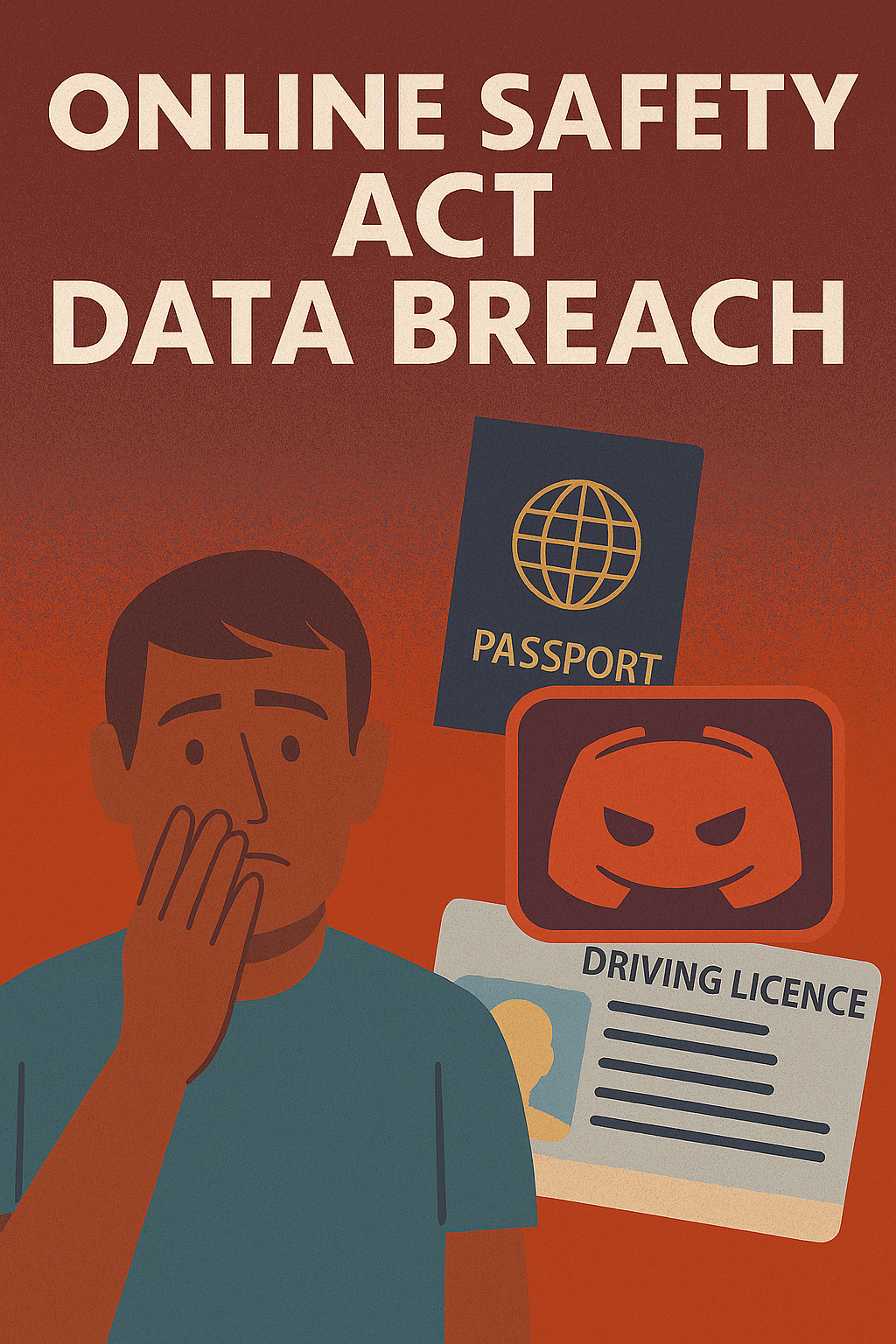
Discord has confirmed a security incident involving its third-party customer service platform that exposed government-issued identity documents from users who had appealed age verification decisions. The breach affected users who submitted driver's licenses, passports, and other official identification documents as part of Discord's age determination appeal process.
The incident occurred through unauthorized access to a third-party customer service system, exposing not only identity documents but also personal information, limited billing data, and customer communications. Discord has not disclosed the number of affected users or duration of exposure.
🚨 Breach Details
- Government ID documents (driver's licenses, passports) exposed from age verification appeals
- Third-party customer service platform compromised, not Discord's primary systems
- Additional data exposed: names, emails, billing info, IP addresses, support communications
- Affected users being contacted directly by Discord
- Highlights risks of mandatory age verification under Online Safety Act
The Age Verification Process
Discord uses third-party age verification services, including India-based KID systems, to process government-issued identity documents. This creates a complex international data processing chain:
- Multi-Jurisdictional Processing: UK users' documents processed across US (Discord) and India (KID verification)
- Limited Legal Protection: Neither US nor Indian privacy laws provide EU-equivalent protection
- Third-Party Dependencies: Multiple international contractors handling sensitive UK citizen data
- Regulatory Gaps: UK regulators have limited oversight of international verification networks
Online Safety Act Implications
This breach occurs as the UK's Online Safety Act 2025 expands age verification requirements across digital platforms, significantly increasing the volume of identity documents collected by technology companies.
Expanded Verification Requirements
Under the Online Safety Act:
- Wider Coverage: More platforms required to implement age verification
- Increased Collection: More users submitting government ID documents
- Third-Party Integration: Platforms using external verification services for compliance
- Cross-Platform Systems: Potential for shared verification across multiple services
Regulatory Challenges
The Discord incident highlights enforcement challenges:
- International Oversight: Ensuring security across global verification networks
- Third-Party Accountability: Determining responsibility for contractor security failures
- Technical Standards: Need for specific security requirements for identity document handling
- Breach Response: Mandatory disclosure requirements regardless of which third party is compromised
User Impact and Protection
Identity Theft Risks
The exposed data enables multiple forms of criminal exploitation:
- Complete Identity Theft: Government ID plus personal details enable comprehensive fraud
- Financial Account Attacks: Credit card data and purchase history facilitate fraud
- Social Engineering: Customer service communications provide attack insights
- Cross-Platform Targeting: Email addresses enable attacks on other services
- Document Forgery: Exposed IDs used as templates for false identification
Protection Recommendations
Affected users should:
- Monitor Finances: Watch all payment methods and bank accounts
- Credit Protection: Place fraud alerts and consider credit freezes
- Change Passwords: Update passwords on accounts using exposed email addresses
- Phishing Vigilance: Be cautious of communications using personal information
- Long-term Monitoring: Stolen data can be used months or years later
Systemic Security Risks
The Discord breach reveals broader problems with the digital identity verification ecosystem:
- Target Multiplication: More platforms collecting identity documents means more breach targets
- Third-Party Vulnerabilities: Verification services becoming high-value targets
- Document Reuse: Same documents used across platforms multiplies breach impact
- Regulatory Fragmentation: Different security standards across jurisdictions
- International Complexity: Cross-border data flows complicate oversight and legal recourse
Industry Response Needed
This incident highlights several areas requiring urgent attention:
- Security Standards: Specific requirements for identity document protection
- Third-Party Oversight: Enhanced monitoring of verification service providers
- Alternative Methods: Age verification technologies that don't require document collection
- Liability Frameworks: Clear responsibility assignment for third-party failures
- User Compensation: Better protections for affected individuals
Conclusion
Discord's age verification breach exposes the fundamental tension in online safety policy: protecting children through age verification creates new risks for all users who must submit sensitive identity documents to platforms with varying security capabilities.
As the Online Safety Act drives wider implementation of age verification, this incident serves as a crucial warning about the unintended consequences of mandatory identity verification. The involvement of international third-party systems adds complexity and risk that may not be apparent to users or regulators.
The breach highlights the urgent need for robust security standards specifically designed for identity document handling, comprehensive oversight of third-party verification providers, and serious consideration of whether the privacy and security risks of widespread age verification justify the intended safety benefits.
As digital identity verification becomes increasingly common, incidents like this will likely become more frequent unless the industry and regulators work together to establish and enforce rigorous security standards for identity document protection.